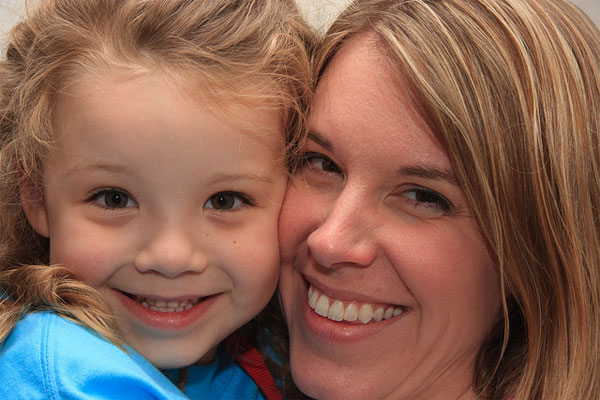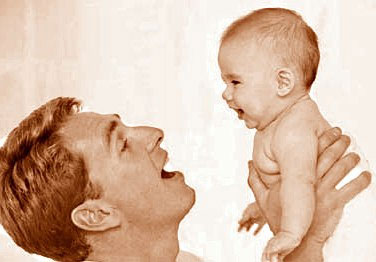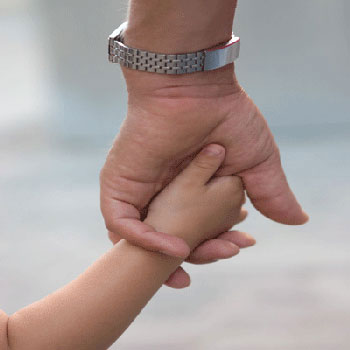Spare the rod or punish the child? Parenting is not easy. Here is how you can identify your parenting style. Being a parent is like walking on a tightrope, as you balance love on one side and discipline on the other. Your success or failure at achieving the balance determines your parenting style. A good parent is the one, who is responsive to her childs needs, but at the same time, corrects him when necessary. Here are some hypothetical situations to help you identify your parenting style. Even if these questions are not immediately applicable to you, be honest with yourself and think how you would react in these situations. In this articleTV versus HomeworkSibling FightsAdult Movies and Your ChildExam PerformanceTantrums at RestaurantScoresWhat does Research say about Parenting Styles? TV versus Homework 1. Your eight-year-old daughters favourite cartoon is on television but she has to finish her homework, which will take at least two hours, and there are just three hours to bedtime. Your response: "Do what you want. It is a free world. Do not ask me again." "Watch as much TV as you want. Children should enjoy at this age." "Turn off the TV right NOW, and head to your books, otherwise…" "You need to do your homework first. I will show you the recorded version once you are done." Sibling Fights 2. Your children are having a bitter fight, throwing things at each other. What do you do? Tell them to shut up and stop fighting. They might damage the furniture. Tell them to stop. Even if they do not, they will soon get tired and stop anyway. Fighting is an integral part of growing up. Spank them. Warn them that the consequences will be worse next time. If it still does not work, lock them up in separate rooms. Hold them firmly and explain why fighting is not considered good behaviour. Ask each child to identify his mistakes, and list ways he could have done it better. Adult Movies and Your Child 3. You discover a porn movie in your fifteen-year-old sons room. What do you do? Simply turn a blind eye. Boys will be boys. He has to discover sex eventually. Confiscate the movie and scold him. Punish him by making him write "I will not watch adult movies" 100 times in his book. Discuss sex honestly with him without imposing moral standards. Inform him about the dangers of HIV and unprotected sex. Exam Performance 4. Your child’s performance in exams is poor. What will you do? Just wait for the next exam to see how he performs.Scold your child and pressurize him to sit for long hours to study.Stop him from watching TV, playing games and doing extracurricular activities and concentrate on studies to perform well next time.Analyze why the child is not performing well. Speak to the teachers and tutors about his poor performance. Help him with the studies and make sure that he performs better the next time without pressurizing, scolding or spanking him or her. Tantrums at Restaurant 5. Your five-year old child starts throwing tantrums at a restaurant during a family dine-out. How will you handle the situation?Just ignore him. He will eventually stop throwing tantrums.Shout at the child in public to make him behave himself.Quickly escape from the table and wait till the child calms down.Stay calm and make the child understand that he or she is not expected to behave like this in public. If the child continues to throw tantrums, escape from the table and try to calm the child in a composed manner.Scores Your parenting style may be the combination of more than one of the parenting styles mentioned in the following sections. Mostly As - Permissive (Uninvolved) Parent Parents in this category are uninvolved in their childrens lives, which may stem from a belief that children should be allowed to do what they want with minimum parental interference. Many parents in this category usually do not have quality time for their children, which in rare instances, can border on sheer neglect. Mostly Bs - Permissive (Indulgent) Parent Parents in this category love to indulge their children. At the same time, they do not demand responsible behaviour. They avoid any sort of confrontation with their children. Many parents in this category believe in freedom, and think that children should not be told what to do. Mostly Cs - Authoritarian Parent Parents in this category play the part of the dictator. Orders and rules are meant to be followed without an explanation. Punishment is meant to act as a deterrent for deviant behaviour. Some parents in this category are highly intrusive, and keep an eye on each aspect of their childrens lives. Mostly Ds - Authoritative Parent Parents in this category are authoritative without being authoritarian or too dictatorial. They set clear standards for the behaviour to be expected from their children. Rules are explained and discussed with children. They use firm discipline but avoid harsh punishment. Children are taught to be assertive and socially responsible. What does Research say about Parenting Styles? Research has clearly shown a strong correlation between various parenting styles and the childs performance in various domains such as academic performance, problem behaviour, and social skills. Remember, several factors affect how a child will grow up, and parenting is just one of them. In general: Children with uninvolved parents perform poorly at school. Children with indulgent parents tend to have high self-esteem and good social skills but are more prone to problem behaviour and poor performance in school. Accepting responsibility is difficult for many of them. Children with authoritarian parents perform reasonably well in school and stay out of problem behaviour. However, they are more likely to have lower self-esteem, poor social skills, and higher levels of depression. Children with authoritative parents are less likely to indulge in drug abuse. On an average, they perform well in school. Their social skills are high, and they have high self-esteem. Thus, authoritative parenting, where the parent is clear about his expectations from his children, and at the same time, is emotionally responsive and recognises his sons independence, has been shown to be one of the most consistent predictors of a childs good performance in many aspects.
Spare the rod or punish the child? Parenting is not easy. Here is how you can identify your parenting style. Being a parent is like walking on a tightrope, as you balance love on one side and
discipline on the other.
Your success or failure at achieving the balance determines your parenting style. A good parent is the one, who is responsive to her child's needs, but at the same time, corrects him when necessary.
Here are some hypothetical situations to help you identify your parenting style. Even if these questions are not immediately applicable to you, be honest with yourself and think how you would react in these situations.
TV versus Homework
1. Your eight-year-old daughter's favourite cartoon is on television but she has to finish her homework, which will take at least two hours, and there are just three hours to bedtime. Your response:
- "Do what you want. It is a free world. Do not ask me again."
- "Watch as much TV as you want. Children should enjoy at this age."
- "Turn off the TV right NOW, and head to your books, otherwise…"
- "You need to do your homework first. I will show you the recorded version once you are done."
Sibling Fights
2. Your children are having a bitter fight, throwing things at each other. What do you do?
- Tell them to shut up and stop fighting. They might damage the furniture.
- Tell them to stop. Even if they do not, they will soon get tired and stop anyway. Fighting is an integral part of growing up.
- Spank them. Warn them that the consequences will be worse next time. If it still does not work, lock them up in separate rooms.
- Hold them firmly and explain why fighting is not considered good behaviour. Ask each child to identify his mistakes, and list ways he could have done it better.
Adult Movies and Your Child
3. You discover a porn movie in your fifteen-year-old son's room. What do you do?
- Simply turn a blind eye.
- Boys will be boys. He has to discover sex eventually.
- Confiscate the movie and scold him. Punish him by making him write "I will not watch adult movies" 100 times in his book.
- Discuss sex honestly with him without imposing moral standards. Inform him about the dangers of HIV and unprotected sex.
4. Your child’s performance in exams is poor. What will you do?
- Just wait for the next exam to see how he performs.
- Scold your child and pressurize him to sit for long hours to study.
- Stop him from watching TV, playing games and doing extracurricular activities and concentrate on studies to perform well next time.
- Analyze why the child is not performing well. Speak to the teachers and tutors about his poor performance. Help him with the studies and make sure that he performs better the next time without pressurizing, scolding or spanking him or her.
Tantrums at Restaurant
5. Your five-year old child starts throwing tantrums at a restaurant during a family dine-out. How will you handle the situation?
- Just ignore him. He will eventually stop throwing tantrums.
- Shout at the child in public to make him behave himself.
- Quickly escape from the table and wait till the child calms down.
- Stay calm and make the child understand that he or she is not expected to behave like this in public. If the child continues to throw tantrums, escape from the table and try to calm the child in a composed manner.
Scores
Your parenting style may be the combination of more than one of the parenting styles mentioned in the following sections.
Mostly As - Permissive (Uninvolved) Parent Parents in this category are
uninvolved in their children's lives, which may stem from a belief that
children should be allowed to do what they want with minimum parental interference. Many parents in this category usually do not have quality time for their children, which in rare instances, can border on sheer neglect.
Mostly Bs - Permissive (Indulgent) Parent Parents in this category love to indulge their children. At the same time, they do not demand responsible behaviour. They avoid any sort of confrontation with their children. Many parents in this category believe in freedom, and think that children should not be told what to do.
Mostly Cs - Authoritarian Parent Parents in this category play the part of the dictator. Orders and rules are meant to be followed without an explanation. Punishment is meant to act as a deterrent for deviant behaviour. Some
parents in this category are highly intrusive, and keep an eye on each aspect of their children's lives.
Mostly Ds - Authoritative Parent Parents in this category are authoritative without being authoritarian or too dictatorial. They set clear standards for the behaviour to be expected from their children. Rules are explained and discussed with children. They use firm discipline but avoid harsh punishment. Children are taught to be assertive and socially responsible.
What does Research say about Parenting Styles?
Research has clearly shown a strong correlation between various
parenting styles and the child's performance in various domains such as academic performance, problem behaviour, and social skills. Remember, several factors affect how a child will grow up, and parenting is just one of them.
In general:
- Children with uninvolved parents perform poorly at school.
- Children with indulgent parents tend to have high self-esteem and good social skills but are more prone to problem behaviour and poor performance in school. Accepting responsibility is difficult for many of them.
- Children with authoritarian parents perform reasonably well in school and stay out of problem behaviour. However, they are more likely to have lower self-esteem, poor social skills, and higher levels of depression.
- Children with authoritative parents are less likely to indulge in drug abuse. On an average, they perform well in school. Their social skills are high, and they have high self-esteem.
Thus, authoritative parenting, where the parent is clear about his expectations from his children, and at the same time, is emotionally responsive and recognises his son's independence, has been shown to be one of the most consistent predictors of a child's good performance in many aspects.



































